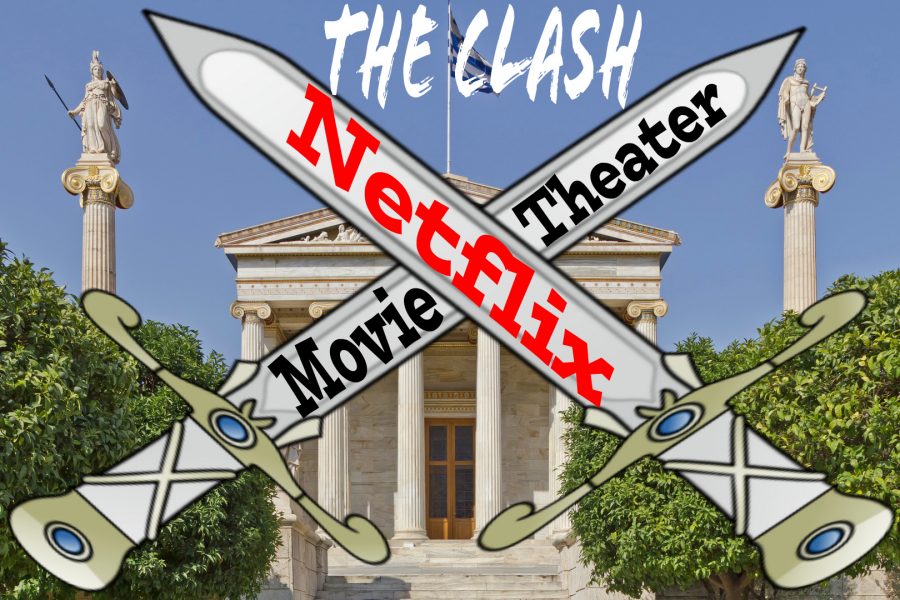From the beginning of motion pictures, studios battled each other to attract the largest audience, but with fast growing technology, theaters are constantly threatened.
Home theaters have been a “threat” to the movie theater industry ever since televisions were first introduced as the new household furniture. Online streaming is no different, other than it’s also a threat to both TV and cinema. But one of the factors that has attracted the largest audience is the investment these online streaming companies have made in independent filmmaking which has recently been lost in theaters, overshadowed by large blockbuster franchises.
While most of us love going to seeing a Marvel flick on the big screen, online streaming companies found that there is also an audience for smaller unique films. These companies provide a platform for that audience, but film festivals have mixed feelings.
It seems as though streaming services like Amazon and Netflix have been taking over the award ceremonies and film festivals lately with Amazon’s recent Academy Award win this year with Manchester By the Sea for Best Actor and Best Original Screenplay, and even The Salesman for Best Foreign Film, becoming the first streaming service to not only be nominated, but also win an Oscar.
At the same time, Netflix scored two entries this year at the notorious Cannes Film Festival, although, it might be the studio’s first and last entry. The rules were changed this year after Netflix’s films Okja and The Meyerowitz Stories made it on the competitors list. A debate started amongst the jury on the festival’s decision to change the entry rules, only allowing films that have been released first in theaters and streamed three years later. Meaning: a film could only compete in the film festival if it was streamed online 36 months after being release in a French cinema. This new rule surfaced the underlying issue: Should movies premiere in theaters or on TV?
There is an audience of movie lovers that firmly believe films are meant for theaters. Speaking on behalf of that audience, award winning director, Pedro Almodovar fought on the side of the cinemas at Cannes arguing that, “I think that the first time we see a movie, the screen should not be smaller than our furniture,” Almodóvar said. “The size of the screen should humble us in order to be captured by the moving pictures and be taken away by the story.”
On the other side of the stand, Will Smith, who is premiering his film Bright on Netflix Dec. 22, defended the streaming services. “I have a 16-year-old, 18-year-old and a 24-year-old at home. They go to the movies twice a week and they watch Netflix,” said Smith. “There is very little to no cross between going to the cinema and watching what they watch on Netflix. There’s movies that aren’t on a screen within 8 thousand miles of them and now they get to find those artist, look them up online, and make contact. There’s this whole underground world of artist that is born from that kind of connectivity.”
Keeping in mind that, unlike Amazon Studios, Netflix refuses to premiere their movies in theaters. They refuse to “premiere” in theaters, not release them. In fact, Netflix is open to screening their films on the big screen, but the theater owners and movie studios want exclusivity and to be the first to show films.
Netflix publish on their said, “Since our members are funding these films, they should be the first to see them. But we are also open to supporting the large theater chains, such as AMC and Regal in the US, if they want to offer our films… in theaters simultaneous to Netflix. Let consumers choose.”
When DVD and VHS came out, video also created the same conflict with theaters. Movie studio handled it by allowing films to go to video when no one would watch them in theaters anymore… but with Netflix, who has over 100 million subscribers, they have the luxury of producing a $40 million film and still lose money. What most people don’t know is that in this “battle” between studios to get more subscribers, Netflix is in $20 billion in debt! For that same reason, they raised their prices from the standard $9.99 to $10.99 and the premium, which provided viewing for up to four screen (plus Ultra HD content) from $11.99 to $13.99. Not to mention Disney already canceled their contract. Starting late 2019, they will be streaming their own film through their Netflix-like app, including their old and new movies.
It looks as though the big movie studios are going to end up turning their backs on Netflix, which is probably why the streaming service is investing so much in their own production. The question is, though, shouldn’t the public be the one to decide whether they want to see a movie at home or go to the theaters?



